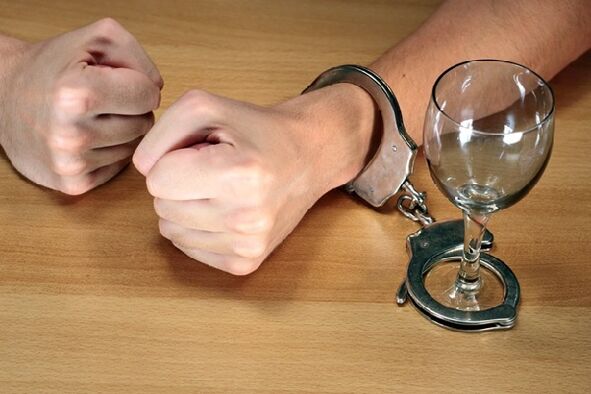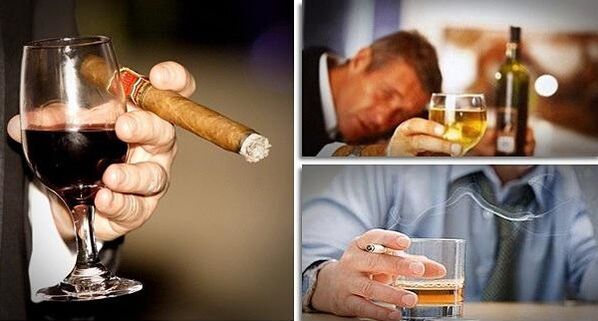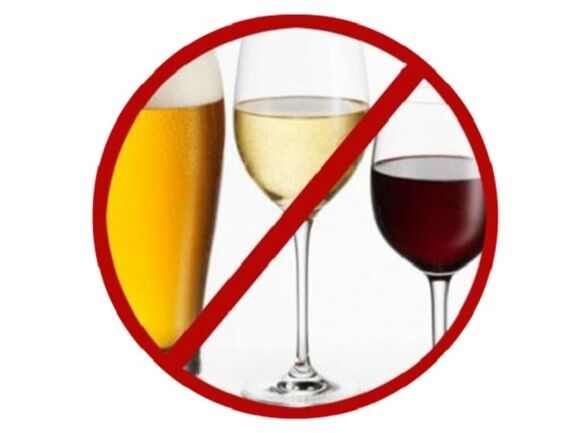Living with a drinker is far from every girl's dream. As a result, many relatives and relatives of an alcoholic go to great lengths to allow him to live a full and healthy life without alcohol. But unfortunately, not everyone succeeds because most alcoholics don't want to take the initiative to break this bad habit, so relatives have to take all the initiative in their own hands and try to solve the problem on their own. And modern treatments for alcoholism, often done without the alcoholic's knowledge, can help. How to get a person to quit drinking? If you are interested in the answer to this question, you need to carefully study an alcoholic's "requirements" to make the right decision about his treatment.
dialogue
The first and most correct decision is to calmly talk to the drinker and ask him to stop drinking, because every liter of beer or any other drink can seriously damage a person's health. If drinking is related to family, friends or hard work, the drinker will be able to quit drinking quickly, especially if he feels supported by his loved ones.

Many intoxicated people understand that every alcoholic beverage consumed, even as a treatment, can greatly impair the functioning of the liver and other organs. However, there is nothing they can do because of the constant need for the body to consume alcohol. If you can't convince a person, you need to explain to him the dangers of alcohol, the difficult life ahead, and the possible health problems of continued drinking. Often, alcoholics are very concerned about the quality of life in the future because they are afraid of everything that will interfere with their existence in the future.
It would also be worth convincing an alcoholic if he developed a strong intoxication with his body after the "stormy feast" the next day. In this case, the alcoholic will surely remember all the unpleasant feelings in the morning, especially if they have passed for a long time.
IMPORTANT: People who drink don't always sense all the information their relatives are communicating to them right from the start, so there are some rules you must consider when you're ready to talk:
- You should not talk to a drunk until he is fully sober and back to normal - in which case he will not be able to understand the full truth of your instructions;
- Don't force a person to quit a bad habit when they have a hangover;
- No need to try to elicit sympathy and ask the drunk to stop drinking, and to create scandals, even if the person is sober - so that it is impossible to force him to quit this bad habit: the conversation should be calm and "soft";
- You can try to threaten that people who drink a lot will lose family and friends, but in this case you need to be prepared to make such threats;
- Those who persuade alcoholics to stop drinking can try to contact an anesthesiologist - if successful, the patient can go to the hospital for treatment immediately.
If you can't force him to stop drinking, you can try making a list of motivations that describe all the positive qualities of this adventure, from restoring health to improving the quality of life for your family. Such a list might look like this:
- Doing something fun and exciting instead of drinking will help you develop and improve.
- Earn your child's respect by saying "no" to alcoholic beverages.
- You can stop drinking and save for vacation trips or anything unusual.

The reasons for drinking are different: some drink to forget, some drink for fun or a hobby. So, if you can't force a person to stop drinking, you need to figure out why he's drinking before trying to treat him.
taking medication or receiving treatment at a clinic
If words cannot convince a person to quit drinking, you can try advising the drinker to take special drops or pills that will help create an aversion to alcoholic beverages. Modern drugs can quickly develop aversion to alcohol, namely:
- The drug causes aversion to smell;
- mind;
- The taste of alcohol.
Only a doctor should prescribe medication, who will take into account the state of the body and determine a person's stage of intoxication.

If an alcoholic doesn't want to take pills, you can mix them into his food and drink (including alcohol) - after 5 minutes he'll feel sick and stop drinking.
Important: Anti-alcohol preparations contain an active ingredient (cyanamide) that prevents alcohol from being processed quickly and normally in the body. This can lead to systemic intoxication, resulting in the inability of the alcohol product to be excreted from the body. A person will be so ill at this point that it is unlikely that he will decide to drink again.
If the patient decides to take the medicine on his own, he doesn't want to start drinking again, because the medicine won't allow him to do so, except for strong psychological factors. If an alcoholic wants to stop drinking on his own, he can be treated in a clinic where doctors will do everything possible to get him back as quickly as possible. The benefits of this treatment are obvious:
- continuous monitoring of patients;
- Helps restore organs damaged by excessive alcohol consumption;
- Important psychological support for alcoholics.
How to convince a person to stop drinking with the help of medication has become clear. But if the drinker doesn't want to take it or is barred from treatment for health reasons, you can turn to folk recipes that will help the alcoholic say goodbye to this bad habit.
Folk ways of dealing with alcoholism
It is important to note that traditional medicine is more effective in this regard, as this method works on every organism and has no side effects. To stop drinking, take plenty of herbal soups and teas, and drink infusions of fruits, berries, etc. The most famous recipes are:
- You can try adding green bugs to alcohol, which can quickly develop an unpleasant smell and taste that can lead to early disgust.
- Pepper helps protect a person from drinking alcohol - for this you need to make a red pepper and alcohol tincture at a ratio of 20 grams per 500 ml. Add this mixture to the alcohol drop by drop, and the person will immediately reject it.
- If these methods don't help, you can have a person inhale birch smoke, which can cause a strong aversion to alcohol-containing products.

In most cases, these methods help to overcome alcohol cravings quickly, but in order to have more confidence in the quality of treatment, the patient himself should abstain from alcohol.































